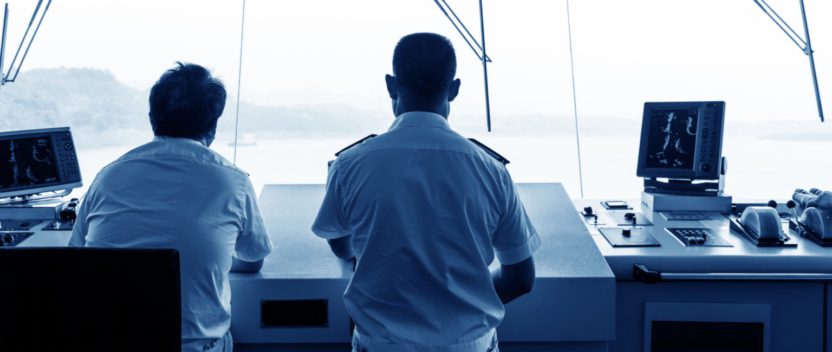A match made in orbit
In a previous article we looked at how an individual company is trying to leverage an open API (Application Program Interface) platform to bring together data with applications to the benefit of end users. But given the scale of the challenge of making shipping smarter, increasing efficiency and complying with environmental regulations, there is clearly more to do.
In the UK, this role in part falls to the Satellite Applications Catapult which works between network operators and applications developers, facilitating project development and matching partners with academics and funding sources.
“The maritime industry is obviously very fragmented,” says Head of Market Programmes, Sean McCarthy. “How to define shipping, who is an owner, an operator or charterer is a challenge when you are the satellite business or an applications developer. We help them engage better with the maritime community.”
Envisaged by a previous government, the Catapult framework was created under the last administration and tasked with helping create jobs and grow a number of UK industry sectors. Catapult projects are running across numerous disciplines and the Satellite Applications Catapult is focused on the downstream opportunities of harnessing the potential from satellites rather than building more.
“We promote innovation in the satellite and space sectors, so if someone launches the assets we are there to help advise them what users are looking for and what services they might provide,” he explains.
Central to the concept is being more than a virtual network, the Catapult is a physical entity of more than 100 people including experts in communications, navigation systems and using remote sensing for Earth observation.
“Part of our role is bridging the gap between the world of academic research and industry, through direct links with Universities and our Centres of Excellence across the country,” he continues. This dating service matches the network operators and app builders with academics in a way that identifies projects with real potential for commercial development.
Recent research has included investigations of the data potential from the new European Space Agency (ESA) Sentinel 1 satellite which McCarthy suggests could be used for potential maritime applications such as ice monitoring and vessel surveillance for improved domain awareness.
Equally important is Catapult’s expertise in securing funding from the numerous sources including ESA, Innovate UK and the European Union’s Horizon 2020 programmes. “We can assist directly in bidding for funding and working with the partners to develop solutions. We won’t usually seek to lead programmes but we can provide technical expertise and help co-ordinate them.”
And to encourage a wide spread of projects, the Catapult runs competitions that aspiring developers can enter and potentially secure access to backing from sources including the Newton Fund.
If projects don’t create jobs in the UK space sector then they stand less chance of a green light, but where developers can show they have an idea that needs more research and may well result in a commercial product, they are more likely to succeed.
A key showcase at the moment is the body’s work with the Pew Charitable Trusts on illegal, unreported and unregulated fishing.
The PCT wanted a tool that was both more specific and more flexible than anything they could buy off the shelf and the Catapult helped fuse data sets with sensor and display technology to produce something McCarthy says is ‘really powerful’.
“The resulting capability could easily be exploited by industries beyond fishing such as monitoring merchant vessel traffic. Or we could overlay marine science data such as sea states and temperature from sensors and visualise that for the end user,” he says. Satellite-assisted navigation safety or security applications are not new but they could provide an enhanced service by harnessing both new communications capacity and better data.
Neither do developers have to fear loss of intellectual property rights as the price of the Catapult’s involvement. While it has the capability to own IP, McCarthy says it is flexible. “If IP is generated by the programme, we can exploit it or encourage others to do the same.”
“We are about technology but we also look at business models. For example, we have an importer who wants to monitor perishable goods in reefer containers, you can buy most of the technology off the shelf, but our question is, why have more users not taken it up? It’s an area we are talking to the market about and will help to promote the solution, if there’s a genuine need.”
The barriers in the maritime industry are pretty well known, ranging from the problem of split incentives, the need for champions and the reality that plenty of IT teams have put their heads above the parapet in the past, only to find themselves in the crosshairs.
Even so, it becomes clear during our conversation that he sees numerous potential projects that could meet very specific industry needs. Among them is work to determine the potential to develop bespoke satellite sensors as well as fusing in-situ sensor data from the vessel, transmitted via satellite communications to support the reporting of sulphur emissions. For an owner, operator or ship management company the ability to collect data on what is coming out of the funnel is a no-brainer.
For local and global regulators it might be the Rosetta Stone of enforcement given current ECA rules and the future global cap on sulphur and nitrogen dioxide emissions, providing the means to accurately inventory ship-source emissions.
“Clearly we would need partners to do that but we also have some of the components, including experts who can interpret data,” he says. “But being able to measure emissions or distinguish one type of oil from another ticks a lot of boxes for us.”
ENDS


